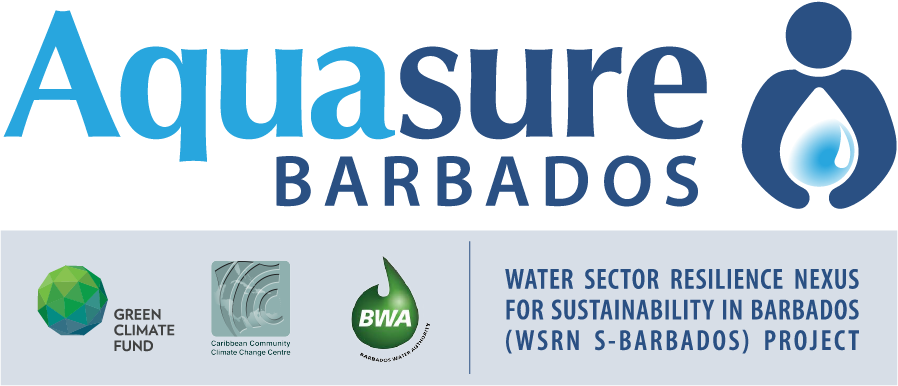By Samantha Hazlewood-Ermay
Communication & Marketing Consultant
WSRN-S Barbados project
Barbados, the gem of the Caribbean, boasting of stunning beaches, a vibrant culture and warm hospitality. But behind this picturesque island lies a pressing issue: water scarcity. Ranked among the 15th water-scarcest countries globally, some Barbadians face a daily battle for water security, particularly in the rural parishes.
Picture this: Sunday morning, the sun is scorching your only off- day and you’re about to do a load of laundry. You go to wash your “whites” but you’re greeted with no water. Or you are ready to cook a scrumptious Sunday lunch and you are faced with a trickle of water. These scenarios are not foreign to many of our residents in St. Lucy, St. Peter and St. Andrew. There was a time when taps were mere accent pieces in many homes.
Let’s get into it!
Water security isn’t just about having access to water; it’s about having reliable access to safe and clean water for drinking, sanitation, and hygiene. However, for vulnerable families in Barbados, this basic necessity is often a luxury. Limited access to water means compromised hygiene, increased health risks, and added financial strain as they resort to purchasing expensive bottled water or relying on erratic water deliveries.
In the northern and north easterly parishes, where water scarcity hits hardest, the situation is even more dire. Families here must navigate through a maze of water rationing, relying on sporadic water truck deliveries or queuing up for precious gallons at community taps. In these areas, every drop counts, and conservation isn’t just a choice; it’s a way of life.
Barbadians are resilient by nature and community spirit runs deep. In neighbourhoods where water is scarce, you’ll often find residents banding together, sharing tips on water conservation and lending a helping hand during shortages.
However, addressing water security requires more than just community efforts; it demands systemic change and proactive measures from policymakers. Investments in infrastructure. The Water Sector Resilience Nexus for Sustainability in Barbados (WSRN S-Barbados) project was launched in 2019 with a mandate to create sustainable, resilient water supply for Barbados by implementing renewable energy solutions, increasing water capacity through rainwater harvesting and water storage, supporting adaptation funding, and raising awareness about climate change and the water cycle. This project has a lifespan of 30 years and is soon coming to completion ( 2024).
To date
Photovoltaic solar power have been installed at water pumping stations will result in greater resilience for the water system and reduce the carbon footprint of the Barbados Water Authority (BWA). Along with this the project has worked with the most vulnerable communities and provided potable water tanks and rainwater harvesting tanks. These tanks have also been shared with schools, farms, community centers and polyclinics. This initiative seeks to increase climate resilience and reduce water outage for the sectors who were provided with these tank systems
So yes!
Things are being done in the background, but let’s not forget the human aspect of the story. Behind the statistics and policy proposals are real people, families striving to make ends meet despite the odds stacked against them.
Water security isn’t just a challenge to overcome; it’s an opportunity to unite, innovate, and build a more resilient nation—one where every family, regardless of circumstance, can quench their thirst for a better tomorrow.

